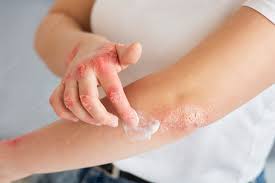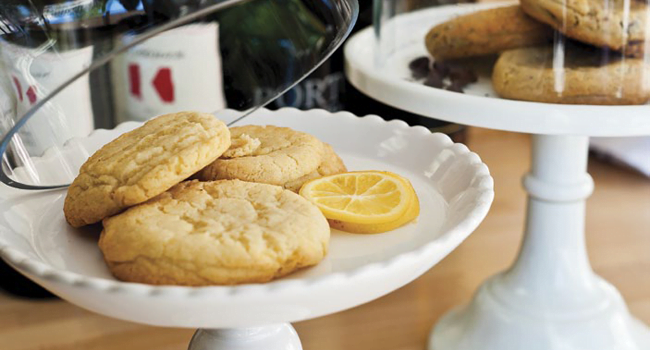Boston terriers are one of the most popular breeds of dogs in the world, and for good reason! They’re playful, friendly, and make great family pets. However, like many other dog breeds, Boston terriers are also likely to be allergic to a variety of food items. If you have a Boston terrier that is allergic to food items, it’s important to find out which foods your pet is sensitive to and make sure you provide them with those foods rather than exposing them to potential allergens.

What are the food allergies Boston Terriers are susceptible to?
There are a few food allergies that Boston Terriers are susceptible to including: wheat, corn, soy and dairy. While it is best to consult with your veterinarian to determine if your Boston Terrier is actually allergic to any specific foods, these tips may help you feed your dog food that is free of allergens.
When feeding your Boston Terrier food that is free of allergens, make sure to provide plenty of high-quality protein and good quality carbohydrates. You can give them treats or small meals several times throughout the day as well as offer water in a safe dish. Be sure to keep all food and treats out of reach of your Boston Terrier when they are not eating.
The Best Foods for Boston Terriers with Allergies
If you have a Boston Terrier with allergies, you know that their skin is especially sensitive. That’s why it’s important to feed them a diet that doesn’t contain any allergens. Here are some of the best foods for boston terriers with allergies:
-A wet food diet is perfect for boston terriers with allergies because it’s low in proteins and carbs. This type of diet helps to keep their skin clear and healthy.
-Another great food option for boston terriers with allergies is a grain-free diet. Grains can aggravate their skin, so avoiding them will help to keep their skin healthy.
-Finally, make sure to give your Boston Terrier plenty of fresh water and sunshine! These two things are essential for keeping their skin healthy and free from allergens.
The Worst Foods for Boston Terriers with Allergies
If your Boston Terrier is allergic to something, it’s important to know what foods can cause reactions. Here are the worst offenders:
-Cats: A recent study found that cats are the number one allergen for Boston Terriers. This is because cats produce a type of protein called Fel d 1 which is often present in their saliva and hair. If you have a Boston Terrier that’s allergic to cats, make sure to keep them away from cat toys, scratching posts and other surfaces where they may have been contaminated.
-Fish: Many people mistakenly believe that fish is a good food for Boston Terriers, but this is not the case. Fish contains high levels of omega-3 fatty acids which can be harmful to dogs with allergies. If your Boston Terrier has an allergy to fish, make sure to avoid processed foods containing fish as well as fresh fish altogether.
-Eggs: Eggs are another common allergen and can be problematic for Boston Terriers with allergies. The proteins in eggs can trigger a reaction in dogs that are allergic to them. Make sure to keep your Boston Terrier away from eggs if they’re sensitive to them.
Types of Food Allergies
Boston terriers are one of the most popular breeds of dog and they have a lot of fans because of their friendly personality and playful nature. However, Boston terriers can also be prone to food allergies. If your Boston terrier has skin allergies, you need to be aware of the different types of food allergies your pup may suffer from.
The most common type of food allergy in dogs is known as canine atopy syndrome (CAS). CAS is an umbrella term that refers to any allergy that occurs in dogs. CAS includes food allergies, inhalant allergies, latex allergies, and environmental allergies. Boston terriers are particularly prone to CAS because they are often bred as working dogs and are exposed to a lot of different allergens in their environment.
Food allergies in Boston terriers can manifest themselves in a variety of ways. Some Boston terriers will have mild symptoms such as skin rashes or itching. Others will experience more severe reactions such as vomiting or diarrhea. In some cases, Boston terriers may even develop anaphylactic shock if they are allergic to a food item that contains an allergen.
If you suspect that your Boston terrier is suffering from food allergies,
The Basic Ingredients of a Boston Terrier Diet
One of the most common issues that Boston Terriers face is skin allergies. Because Boston Terriers are so active, they are often exposed to things that their owners may be allergic to. In order to ensure that your Boston Terrier is getting the best possible diet, it is important to understand what ingredients are necessary for a healthy skin and coat.
In general, a Boston Terrier diet should have plenty of protein and carbohydrates. Protein is essential for keeping skin and coat healthy, while carbohydrates help to provide energy. Other key ingredients for a Boston Terrier diet include omega-3 fatty acids, vitamins E and B12, and minerals like potassium and magnesium.
When selecting food for your Boston Terrier with skin allergies, be sure to choose foods that are low in allergens. This means avoiding items such as wheat, soy, dairy, eggs, corn, peanuts, tree nuts and other grains. Instead, try feeding your dog foods like vegetables (such as broccoli), fruits (like apples), animal proteins (such as chicken), and healthy fats (like avocado).
Foods to Avoid If Your Boston Terrier Has Allergies
By: Jackie Cavanaugh
Boston Terriers are known for their fluffy fur and charming personalities, but some owners may not be aware that these dogs can also have skin allergies. For Boston Terriers with allergies, eating certain foods can cause severe reactions, which can include hives, itching, and even vomiting. If you think your Boston Terrier may have allergies, it’s important to keep a food diary and identify the foods that are causing problems. Here are some foods to avoid if your Boston Terrier has allergies:
– Wheat products (breads, pasta, cereals)
– Dairy products (milk, cheese, yogurt)
– Egg products
– Fish
– Crustaceans (lobster, crabmeat)
– Tree nuts (almonds, cashews)
– Soy products (soy sauce, tofu)
Common Symptoms of a Food Allergy in a Boston Terrier
A food allergy in a Boston Terrier can manifest as a variety of symptoms. Some of the most common include skin rashes, itchy ears, and sneezing. If you are concerned that your Boston Terrier may have a food allergy, it is important to consult with a veterinarian or allergist. There are many options available for dealing with food allergies in dogs, including prescription medications and dietary adjustments.
Prevention Tips for Food Allergies in Boston Terriers
When it comes to allergies, Boston Terriers are no exception. While some allergies are unavoidable, others can be prevented through careful diet planning. That’s why it’s so important to keep your Boston Terrier well-fed and happy, with plenty of good food options to choose from! Here are a few tips for keeping your pup safe and healthy when it comes to food allergies:
1. Introduce new foods slowly – Start by gradually introducing one new food each week to see if your Boston Terrier reacts. If he does, then you know that the new food is likely causing his allergy. Gradually increase the number of new foods being introduced each week until your dog is eating a variety of different types of food.
2. Avoid processed foods – Many common allergens (wheat, milk, soy, corn) are often found in processed foods. Rather than feeding your Boston Terrier these kinds of foods, make sure to feed him fresh, whole foods as much as possible. Look for natural ingredients whenever possible and avoid processed meats and sugary treats altogether.
3. Check labels carefully – Make sure to read all labels on food before giving it to your Boston Terrier. Avoid anything with
Types of food allergies
When it comes to allergies, pets are no exception. According to the ASPCA, one in four Americans suffers from some form of allergy, and one in eight suffers from a food allergy. There are many different food allergies, and each pet is likely to have a different reaction to different foods.
If you’re concerned about your Boston terrier’s skin allergies, there are a few things you can do to help minimize the risk of any flare-ups. First, make sure your Boston terrier is always well-hydrated. Second, try to feed him or heriffin a variety of foods, rather than just one type of food. Finally, be sure to read the ingredients list on any food you give your Boston terrier to make sure there are no allergens in the food.
Foods to avoid with food allergies
One of the most common food allergies is to dogs, cats, and other animals. If your dog has a food allergy, it is important to know what foods might be harmful to him. Unfortunately, there are many foods that can be harmful to a food allergic dog. Here are some foods to avoid when you have a dog with food allergies:
-Chips
-Baked goods
-Hot dogs
-Chocolate
-Peanuts
-Shellfish
-Eggs
Tips for preparing food without allergens
If your Boston Terrier has skin allergies, you’ll want to read our tips for preparing food without allergens. You may be surprised to learn that many common ingredients used in dog foods contain allergens that can cause your pet to have skin problems. By avoiding these ingredients, you can make sure that your Boston Terrier’s food is free of potential allergens.
Here are some of the most common allergens found in dog foods: wheat, soy, corn, dairy, chicken, beef and pork. While it’s not always possible to avoid all of these ingredients completely, following these tips will help you create a diet that is least likely to trigger skin problems for your Boston Terrier.
Avoid wheat, soy and corn in your Boston Terrier’s food. These ingredients are common in many dog foods and can cause allergies in dogs. Instead choose foods like meat-based diets or grain-free diets.
try dairy free alternatives like cottage cheese or yogurt instead of milk or cheese
choose chicken or beef over pork products when possible, as they are generally lower in allergen content
avoid feeding your Boston Terrier highly processed foods and instead choose whole grain versions
Treats and snacks that are safe for dogs with food allergies
Boston terriers are notorious for having sensitive skin, making them prone to developing food allergies. Fortunately, there are plenty of snacks and treats that are safe for these dogs. Here are a few treats and snacks that are recommended by veterinarians:
Organic roasted pumpkin seeds – These are a great snack for dogs with food allergies because they are low in sugar and high in fiber.
– These are a great snack for dogs with food allergies because they are low in sugar and high in fiber. Raw vegetables – Many Boston terrier owners report that their dogs love crunchy raw vegetables as a treat. Make sure to feed these sparingly, however, as too much can be difficult on their stomachs.
– Many Boston terrier owners report that their dogs love crunchy raw vegetables as a treat. Make sure to feed these sparingly, however, as too much can be difficult on their stomachs. Homemade dog treats – If you’re up for it, make your own treats from ingredients your dog is likely to tolerate (like chicken or fish). Just be sure to avoid any ingredients that might cause allergies in your dog.
Conclusion
If you have a Boston Terrier and are struggling to find foods that your dog can eat without developing skin allergies, then you might want to try making some food substitutions. Some common allergens that Boston Terriers are prone to reacting to include wheat, soy, dairy, corn, and eggs. If your Boston Terrier is experiencing significant problems with allergic reactions after eating certain foods, it might be best to consult with a veterinarian before adjusting his or her diet.










